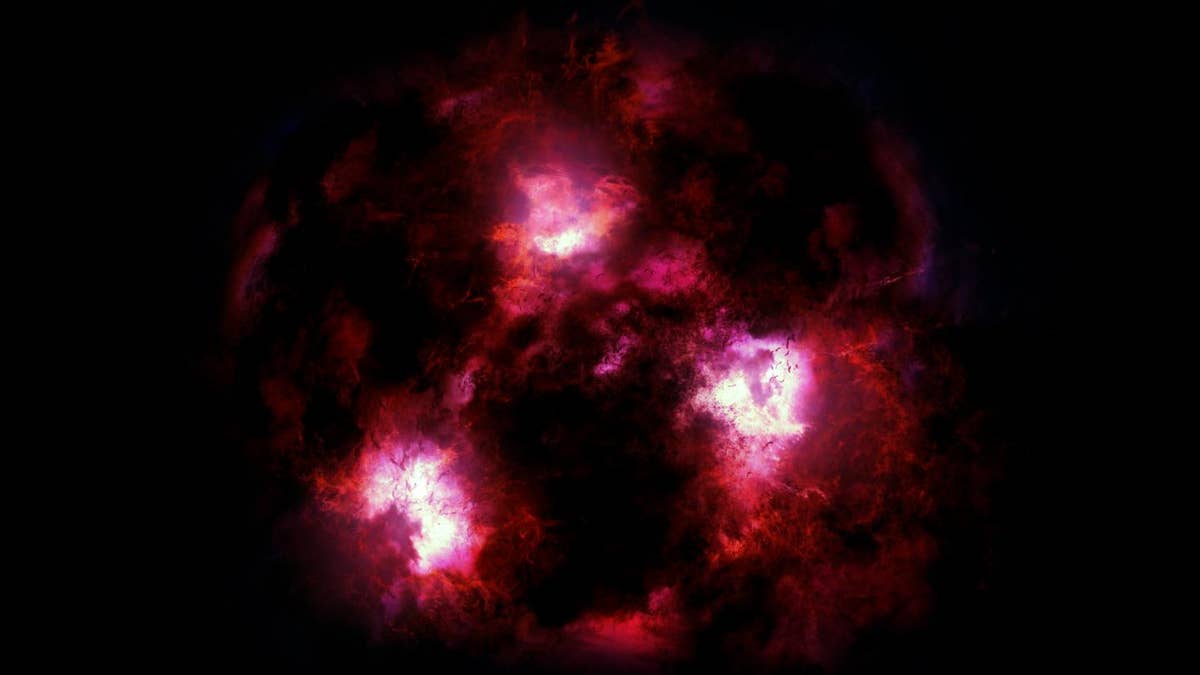Fox News Flash top headlines for Oct. 23
Fox News Flash top headlines for Oct. 23 are here. Check out what's clicking on Foxnews.com
Astronomers in the U.S. and Australia have spotted a gigantic galaxy from the universe’s dawn. And they've dubbed it “Cosmic Yeti.”
Experts accidentally spotted the “footprints” of the huge galaxy. “Like a Cosmic Yeti, the scientific community generally regarded these galaxies as folklore, given the lack of evidence of their existence,” the researchers explained in a statement.
The signal from the galaxy has taken 12.5 billion years to reach Earth, according to the research, which is published in The Astrophysical Journal.
SPRAWLING GALAXY CLUSTER DISCOVERED 'HIDING IN PLAIN SIGHT'
The study’s lead author, Christina Williams, an astronomer at the University of Arizona, noticed “a faint light blob” in observations made by the Atacama Large Millimeter Array (ALMA) telescopes in Chile. "It was very mysterious because the light seemed not to be linked to any known galaxy at all," Williams, a National Science Foundation postdoctoral fellow at the Steward Observatory, said in the statement. "When I saw this galaxy was invisible at any other wavelength, I got really excited because it meant that it was probably really far away and hidden by clouds of dust."

An artist's impression of the "Cosmic Yeti." ((James Josephides/Swinburne Astronomy Productions, Christina Williams/University of Arizona, Ivo Labbe/Swinburne))
Experts think that the emission observed was caused by the warm glow of dust particles heated by stars that were forming in the galaxy. However, clouds of dust obscure the light from the stars themselves, which made the galaxy “completely invisible.”
"We figured out that the galaxy is actually a massive monster galaxy with as many stars as our Milky Way, but brimming with activity, forming new stars at 100 times the rate of our own galaxy,” co-author Ivo Labbé, of the Swinburne University of Technology in Melbourne, Australia, said in the statement.
'DRAMATIC' BLACK HOLES STUN SCIENTISTS AS 'WIMPY' GALAXIES QUICKLY TRANSFORM INTO 'RAVENOUS' QUASARS
The discovery could boost scientists’ understanding of how giant galaxies form, the researchers said.
CLICK HERE TO GET THE FOX NEWS APP
Follow James Rogers on Twitter @jamesjrogers









































